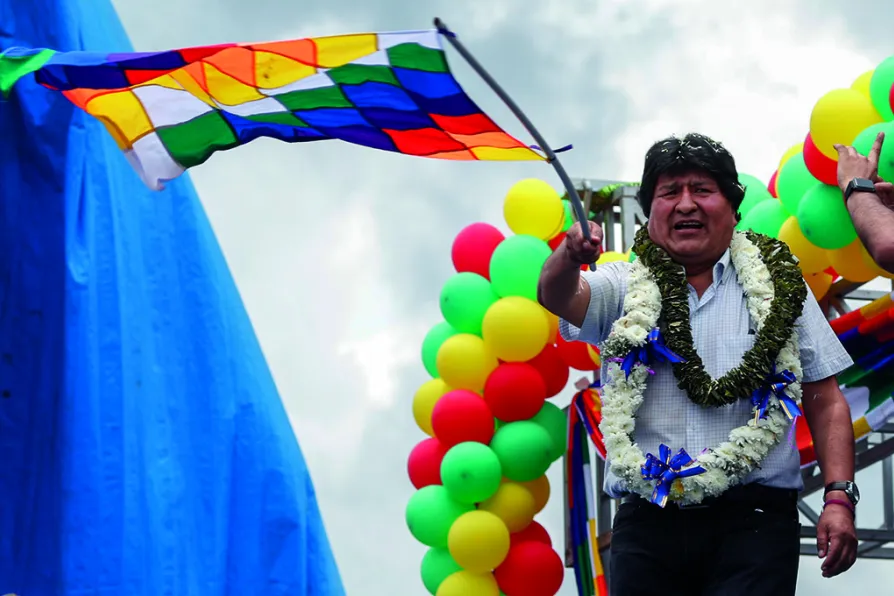From London’s holly-sellers to Engels’s flaming Christmas centrepiece, the plum pudding was more than festive fare in Victorian Britain, says KEITH FLETT
Victory for socialists in Bolivia – but the struggle continues
KEN LIVINGSTONE writes on the restoration of democracy in Bolivia

 Evo Morales returns to Bolivia
Evo Morales returns to Bolivia
THE Movement Towards Socialism’s (MAS) victory in Bolivia’s presidential election, the first held since a military-led coup ousted legitimate President Evo Morales last November, offers a new way forward for the country out of the nightmare of the last year.
Under the coup regime led by Jeanine Anez, a wave of human-rights abuses took place, targeting trade unionists, indigenous activists and MAS supporters, with large-scale violation of people’s rights and the loss of lives.
The decisive scale of the victory, in which MAS candidate Luis Arce secured 55 per cent of the votes against the 29 per cent of his nearest challenger, former president Carlos Mesa, meant that no second-round run-off was required.
Similar stories

After years of struggle in the MAS party, the mass movement of left-wing peasants and workers has founded a new party, with former president Evo Morales as its candidate for the summer’s elections, writes CINDY FORSTER













